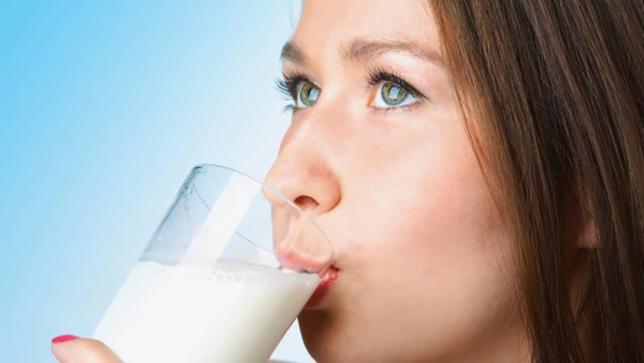Not just for kids, milk is good for adults too

Milk is the first food we consume when we are born into this world, mostly in the form of our mother’s super-nutritious and protective breastmilk.
As kids, we are often told to drink up our milk – usually cow’s milk from the carton – in order to have strong and healthy bones.
But as we grow older, we are likely to stop drinking this nutritious beverage, perhaps because we associate it too much with childhood and want to move on to more “grown-up” drinks like coffee and tea.
Here, personal trainer and nutrition coach Joanna Soh shares the importance of milk in our dietary intake.
Why is drinking milk important?
Milk provides a wide range of health benefits, especially in improving our bone health because it offers a rich source of calcium.
It is also loaded with vitamins and minerals that are essential for our health, such as vitamin D, phosphorous, B vitamins for more energy, and vitamin A for a stronger immune system and healthier skin.
This delicious beverage is an important source of protein too, as each regular glass of milk contains almost 8g of protein, which help to build and repair muscle tissue.
How much milk should I drink?
There is no hard and fast rule as to how much milk a person should consume on a daily basis, but be aware that too much of something is not advisable.
Of course, babies require regular milk intake as it is their sole source of nutrients, be it breast milk or formula milk.
For children below 12, two 250ml glasses of milk a day should be sufficient for good calcium, vitamins and protein intake.
Similarly, for adults, two full glasses of milk a day – once in the morning and once before bed – will provide an adequate amount of nutrients.
Will drinking milk make me fat?
One huge misconception about milk is that one will gain weight if they consume milk regularly.
This is untrue as weight management comes down to your total calorie intake in a day.
If you are watching your weight, you can opt to consume low fat or skim milk, which has a lower percentage of fat.
What should I look out for when buying milk?
It is a good idea to always read food nutrition labels on milk cartons.
There are now milks that contain more protein, more calcium, less fat and less lactose, compared to regular milk, and are also fortified with essential vitamins like vitamins A, B1, B3, B6, B12, C, D3 and E, as well as folic acid.
Vitamin D3 is especially essential to promote the rate of calcium ab-sorption in our bodies, and should be taken together with calcium.
Can milk replace other foods with calcium and protein?
Milk should not be used as a substitute or to replace a meal, but rather, it should complement your diet as part of a healthy living.
You should aim to consume a balanced meal consisting of whole protein such as chicken, fish, eggs, tempeh and beans; good carbohydrates like rice, potatoes and oats; and lots of colourful vegetables.
These food items have additional nutrients that milk does not have.
We should always consume a well-balanced and varied diet, rather than rely on one food source alone.
What if I don’t like the taste of milk?
If you do not like the taste of milk, you can always use it as an ingredient in your meal.
For instance, try adding milk into your breakfast by making overnight oatmeal or a chia pudding, or blend it into smoothies, baked goods, or even soups.
What if I’m lactose-intolerant?
If you are lactose-intolerant, look out for milks that contain less lactose as it will be much easier for your body to digest, compared to regular milk.
You can also drink lactose-free alternatives, such as soy milk, rice milk, almond milk, hemp milk or coconut milk.
Can I just have milk for breakfast?
Again, milk should not be used to replace a meal.
Breakfast is the most important meal of the day and we should consume a well-balanced meal.
Having a healthy hearty breakfast will get your metabolism pumping, keep you energised and help you make healthier choices throughout the day.
If you struggle to find time in the morning to prepare breakfast, try prepping your breakfast the night before.
You may like to make overnight oatmeal or chia pudding and have it the next day for breakfast.
Can milk substitute for protein powders as a pre- or post-workout beverage?
I would say both milk and protein powders provide a list of impressive health benefits, including immune-boosting vitamins and improved physical performance.
But one isn’t an equal substitute for the other.
Milk is a healthful and less-processed alternative to protein powders.
Both milk and protein powders are likely to produce optimal physical improvements if you combine them with a healthy, balanced diet and regular training.
Milk is a good choice as a pre- and post-workout beverage. However, it is better post-workout as it contains carbs, fats and protein that take time to digest.
Consuming milk post-workout helps to rehydrate and fuel your muscles immediately.
Source: The Star Online
